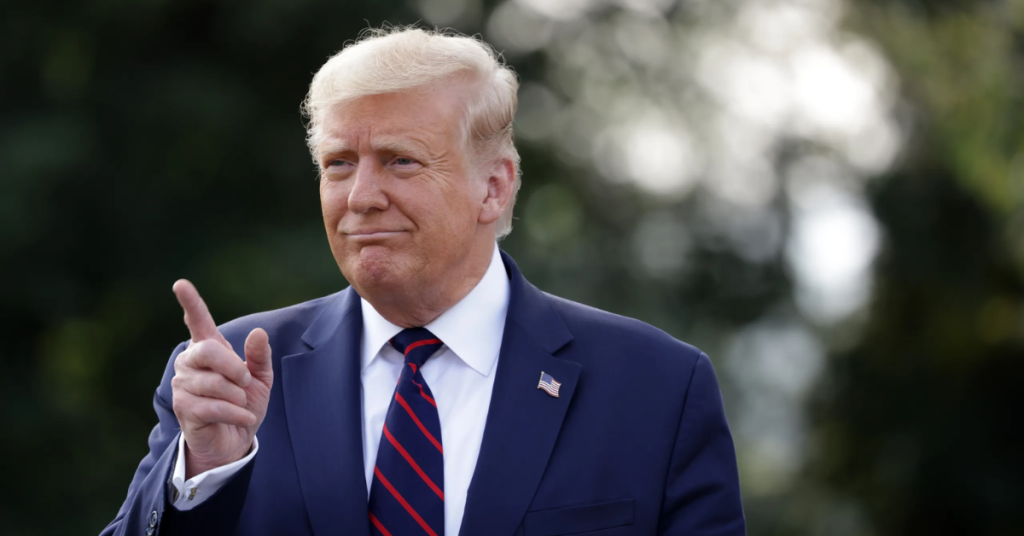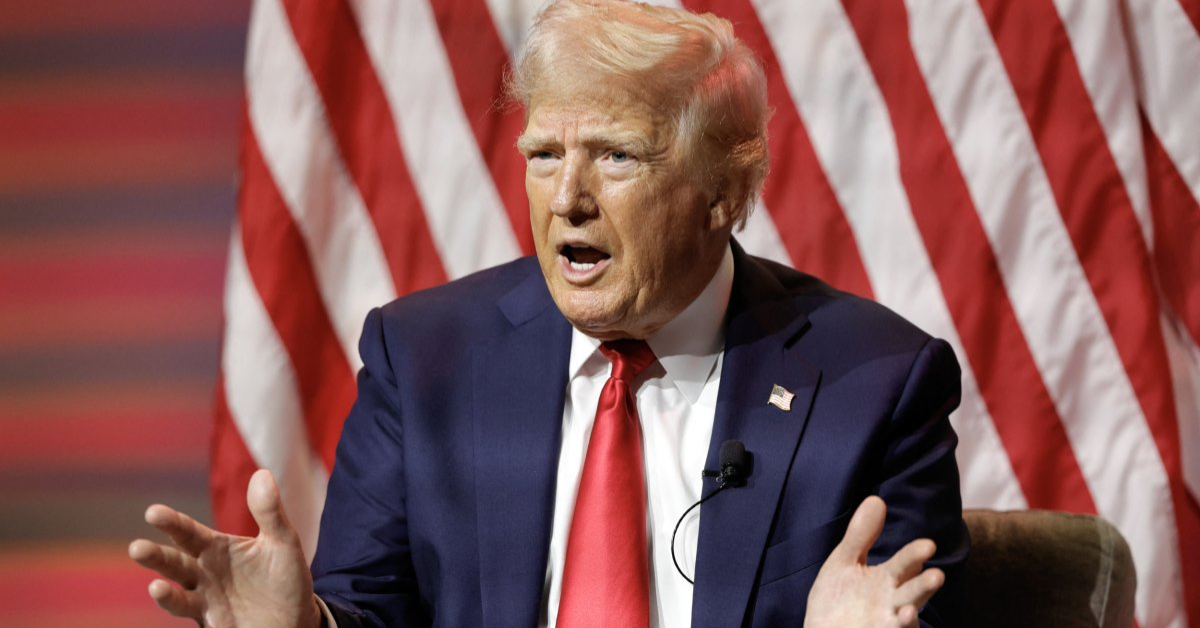Former President Donald Trump recently made a peculiar claim during an interview with Time magazine. While discussing the possibility of taxing the wealthiest Americans, Trump stated that he agrees with taxing billionaires, but fears it could harm the poor. The idea that taxing the rich might hurt the feelings of the poor is certainly an unusual argument. Still, Trump’s reasoning has sparked discussions about the role of taxation and the wealthy in American society.
Trump began by explaining that while he “loves the concept” of taxing the rich, he believes such actions may not be acceptable to the public. In his words, the public is already dealing with the harsh realities of life, such as having to decide between essentials like insulin and food.
Trump suggested that these people would feel terrible seeing billionaires pay higher taxes, as it could upset their image of the rich. The implication here seems to be that poor people might feel bad watching billionaires pay their fair share, as if it would somehow diminish their sense of security.
For many, this statement might sound confusing or even out of touch. After all, poor people are often the ones who bear the brunt of an unfair tax system, where the wealthy are able to reduce their tax burdens through loopholes and tax havens. Many argue that the wealthy should contribute more to public services such as healthcare, education, and infrastructure. So, why would poor people be upset if the rich were finally paying their fair share?
Trump went on to explain that another reason he opposes taxing billionaires is that he believes they would leave the country. He argued that billionaires would have no problem fleeing the U.S. as soon as higher taxes were imposed, taking their wealth with them.
“Now with transportation so quick and easy, they leave countries,” Trump said, seemingly impressed by the advancement of air travel. This comment suggests that he sees taxing the ultra-wealthy as a risk to the nation’s economic stability, as billionaires might move their money and businesses abroad.
This claim raises the question: Is it really likely that billionaires would flee the country if taxed more heavily? The United States has long struggled with tax avoidance, with many billionaires utilising legal loopholes and offshore accounts to minimise their tax liabilities.
However, even if some wealthier individuals were to leave, it seems unlikely that this would have a drastic impact on the economy as a whole. After all, the U.S. is home to the largest economy in the world, and its political and economic stability continue to attract international investment.

However, Trump’s comments about billionaires leaving the country reveal a common concern among the wealthy: the fear that taxes might limit their ability to accumulate wealth. This fear is particularly prevalent among individuals who have benefited from tax cuts and wealth-building policies during Trump’s presidency. For many of these individuals, the idea of paying more in taxes is seen as a threat to their financial freedom and control over their wealth.
Despite these concerns, Trump did make a surprising admission during the interview: he said he “wouldn’t mind personally paying more.” On the surface, this appears to be a generous offer. Still, when considering his background as a billionaire businessman and his record of minimising his taxes, this comment may come across as less sincere. Trump’s tax returns have been the subject of scrutiny, with reports indicating that he paid little in federal income taxes in recent years, largely due to various deductions and tax loopholes.
The irony of this statement is hard to ignore. While Trump claims he wouldn’t mind paying more taxes, his policies as president favoured tax cuts for the wealthy, arguing that they would benefit the economy and create jobs.
Critics of these tax cuts have pointed out that they disproportionately benefited the wealthy, while middle-class Americans saw little to no relief. The fact that Trump now claims he would personally pay more taxes seems like an attempt to position himself as a champion for the poor, even though his actions as president did not reflect this sentiment.
Trump’s comments about the poor’s feelings also seem to play into a broader narrative. By suggesting that poor people would be upset by the idea of billionaires paying more in taxes, Trump is deflecting attention from the real issue at hand: whether the wealthiest Americans should contribute more to society. It seems as though he is more concerned with how the public perceives the problem than with addressing the root causes of income inequality and the unfair distribution of wealth.
This mindset reflects a larger debate in the U.S. about the role of the wealthy in society. Advocates for tax reform argue that billionaires should be taxed more heavily to help fund public services and reduce the growing wealth gap.
Many believe that the wealthiest Americans have a responsibility to contribute more to the country’s welfare, especially as so many working-class people struggle to make ends meet. On the other hand, opponents of higher taxes on the rich, like Trump, argue that such policies would harm the economy and discourage entrepreneurship and investment.
Trump’s concern for the feelings of poor people also highlights the divide between the wealthy and the rest of society. In a country where income inequality continues to rise, many Americans are frustrated by the fact that the ultra-wealthy are able to avoid paying their fair share in taxes.
They see the rich getting richer while the poor struggle to afford necessities. Trump’s comments, however, seem to suggest that the real issue is how the wealthy are perceived by the public, rather than the growing disparity between the rich and the poor.
Ultimately, Trump’s remarks reveal the complexities of the ongoing debate about taxation and wealth inequality in America. While he claims to care about the feelings of poor people, his actions as president suggest that he is more concerned with protecting the interests of the rich.
His comments also raise important questions about the role of taxation in creating a fairer society. Should the wealthiest Americans pay more in taxes to help fund public services? Or should the government continue to prioritise policies that benefit the rich, even if it means that working-class Americans bear the burden?
The debate over wealth inequality and taxation is unlikely to end anytime soon, but Trump’s comments have brought the issue to the forefront once again. While his stance may seem out of touch with the struggles of the poor, it is a reminder that the interests of the wealthy often shape discussions about tax policy. The real challenge moving forward will be finding a way to address the growing wealth gap and ensure that everyone, regardless of their income, pays their fair share.
Disclaimer: This article has been meticulously fact-checked by our team to ensure accuracy and uphold transparency. We strive to deliver trustworthy and dependable content to our readers.


